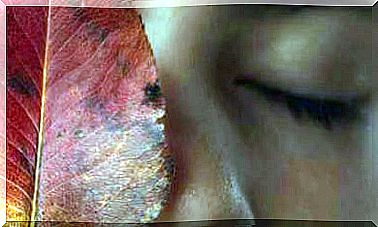Tinnitus: 8 Natural Solutions For Ringing In The Ears
Ringing, clicking, pulsating … Some people perceive them without being caused by an external sound stimulus. They are annoying and even disabling, but there are alternatives to reduce and eliminate them.

Its presence should not be understood as a disease, but rather as a symptom that something is not working properly in our body.
But the perception of tinnitus can become so intense and continuous that, at times, it reduces the ability to enjoy free time and social relationships, and can interfere with work life, generate anxiety, irritability, mood and pattern changes sleep, difficulty concentrating, depression and social isolation.
Why do our ears ring and what can we do?
In general terms, there are usually several factors that converge in or cause tinnitus : inner ear pathologies (cochlear, labyrinthine damage …), alterations in the central nervous system, temporomandibular joint disorders, cervical problems and even emotional problems.
Hence, most professionals opt for a multidisciplinary approach to it. Josep Ribas, an expert psychologist in psychoacuphenes, assures that the success of the treatment lies in the joint work that we carry out in four areas:
- Hearing: going to an otolaryngologist who can detect possible physical injuries.
- Biochemistry: with taking medication (prescribed by a psychiatrist).
- Mechanics: with the help of a physical therapist or a maxillofacial dentist to check for any jaw or cervical mismatch.
- Emotional: the feelings involved in the appearance and development of these sounds are worked on.
Stress, a tinnitus trigger
It is also important to find out what situations activate it. We are all affected in one way or another by stress, anxiety and exhaustion, both physical and mental. Well, all of them present a direct cause and effect relationship both in the appearance of tinnitus and in its treatment and prognosis.
When we experience sustained emotional tension over time, the blood vessels in our ears can narrow and exert a negative influence on the concentration of nutrients.
If the cells of the inner ear are not well nourished, they cannot perform their metabolic functions properly and are at risk of injury.
A temporary or chronic problem
It must be taken into account that around 30% of the adult population has experienced them at some time in life (at least temporarily), but there are cases in which the person has to live with them 24 hours a day.
Given the anguish that this situation can cause, the first thing we need to know is that you can live with tinnitus without losing quality of life, as explained by the Association of People Affected by Tinnitus (APAT).
Effective therapies and techniques against tinnitus
As a first step in the treatment of tinnitus, it is essential that the person has their basic needs regulated; that is, eating, sleeping, varied stimulation, a minimum of physical exercise and relaxation.
In addition, according to José Boronat, president of the APAT, part of the solution lies in achieving a cognitive restructuring of the problem, in such a way that the person understands it and, with the help of an expert psychologist, learns to bring tinnitus to the subconscious. In this way, the sound will not be perceived for much of the time and, if it is perceived, it will not be aggressive.
Among the most used techniques, we can highlight the following:
1. Change your mind
One of the most important techniques used today is the change of thought. It consists of detecting certain interpretations that provoke extremely intense emotions, difficult to handle and, thanks to the use of less negative language, the affected person focuses more on what they can do.
2. Acceptance and commitment
In recent years, third-generation therapies such as Acceptance and Commitment (ACT) and mindfulness have also been developed. In these cases, unlike what happens in the most classic therapies, such as cognitive-behavioral, it is not intended to change the content of our thoughts, but to relate to our thoughts in a more natural way, clarifies the health psychologist Cinthya González.
Specifically, ACT seeks to improve the patient’s situation by accepting reality without facing it, without reacting negatively to changes, free from all judgment and by acquiring a commitment to the emotions and thoughts that appear.
3. Mindfulness
Mindfulness, for its part, involves paying full and conscious attention in the present moment, putting the five senses in it. The person learns to focus their attention, their level of relaxation increases and, therefore, the release time of the tinnitus.
Trying to savor pleasant daily actions (for example, the shower, the fresh air in the morning, a glass of water, the first sip of tea), while observing the bodily and emotional reaction that they provoke, invites us to be aware completely of the moment.
4. Electrostimulation
In those cases in which there is some type of alteration in the structure of the inner ear, mastoid cochlear electrostimulation is presented as a quite feasible option.
Dr. Gonzalo Martínez-Monche, a pioneer in the application of this therapy in our country, explains that, by means of radio frequencies, damaged cells are regenerated and, in 60% of the treated cases, the tinnitus decreases or even disappears.
5. Traditional Chinese medicine
In traditional Chinese medicine, ear symptoms are linked to the renal system. The kidneys store our ancestral energy, that which we receive from our parents at the time of pregnancy, but it weakens as we get older.
The acupuncture and moxibustion (ginger) help in the treatment of tinnitus – related cervical disorders.
6. Manual therapies
Osteopathy and chiropractic can also be very helpful in unblocking the cervical area and improving blood flow in the upper body.
7. Relaxation
The yoga and various deep relaxation techniques can help avoid muscle strain and improve symptoms.
Likewise, adequate rest and the practice of tai chi and chikung to bring energy to the upper body can also help.
8. Cultivate a positive attitude
The worries, anticipations, ruminations and negative thoughts that we generate throughout the day increase this psychological restlessness. in fact, when we improve the quality of our thoughts, there are automatic changes in the perception of tinnitus.
If our emotional state is positive, it is much easier for us not to focus all our attention on the sound and we are able to interpret it in a less catastrophic and dramatic way.
The most appropriate diet to promote silence
During the night, we secrete melatonin, a hormone that helps us regulate sleep cycles. However, with an altered emotional state, the amount we generate decreases. It is therefore advisable to take a supplement that promotes the secretion of melatonin, because being rested helps reduce the perception of tinnitus.
The vitamin supplements magnesium, melatonin, ginkgo biloba and vitamin B, and compounds of magnesium, zinc and vitamins A, B and D may be of assistance.
If you have a lot of nervous tension, you can take relaxing plants such as passionflower, valerian, orange blossom and lemon balm.
Eat foods like oatmeal, whole grains, watercress, alfalfa, dates, bananas, carrots, beets, celery, sunflower seeds, and pumpkin seeds. They are foods rich in tryptophan, a protector of the central nervous system that enhances good mood and helps avoid anxiety states.
What substances to avoid
The monosodium glutamate, widely used in Asian cooking, can intensify the perception of tinnitus. It can be hidden in spices, broths, and sauces. Avoid it!
Certain drugs increase the intensity of tinnitus in those who suffer from them and even cause it to appear in people who do not suffer from them. These include acetylsalicylics (aspirin) and chemotherapy drugs (from platinum).









